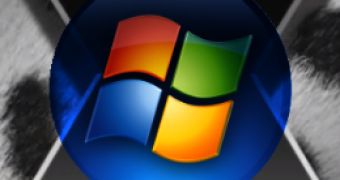The Worldwide Developers Conference 2007 in San Francisco was the stage where Chief Executive Officer Steve Jobs unveiled Safari for windows XP and Windows Vista. What you must understand is the fact that while also gunning for additional share on the browser market, Apple's Safari is intimately connected with the iPhone. The Cupertino-based company's decision to lock third-party developers out of the iPhone generated the need to transition Safari to the Windows platform, so that JavaScript applications written for the mobile phone can be executed within the browser.
The fact of the matter is that all iTunes users on Windows have been running at the backend of the application the Safari browser engine. Still, one potential scenario that Safari on Windows has created is Mac OS X on PCs. Apple's operating system is inherently connected to their hardware. But this does not mean that it cannot be done. One strong argument that supports such a scenario is Apple's involvement with PCs to date. The Cupertino-based company is with iTunes - and it will become with Safari - one of the world's largest developers of Windows software. But this also means that Apple is building programs for PCs.
Additionally, with the introduction of Intel-based Mac computers, Apple has proved that the Mac OS X can adapt to third-party hardware just as easily as to proprietary boxes. However, you must understand that Mac OS X is tributary to the Apple hardware. There is an entire infrastructure set in place for creating and commercializing Mac computers. An infrastructure that places the Mac OS X at the periphery, almost as an accessory.
Microsoft too is directly interested in selling hardware, as PCs are associated with Windows. The Windows Vista logo program offering discounted upgrades from the past year, designed to help PC manufacturers get unharmed past the holiday season, following the availability of the operating system in 2007, is more than sufficient proof. But Microsoft is a software company in the end, and it will sell Windows for PCs and for Macs, just as computer manufacturers will sell both Windows and Linux pre-loaded on their machines. With Apple, there is a more intimate connection between the hardware and the operating system.
So while Mac OS X for PCs will indeed become a reality in the future, such a move from Apple would be a huge gambit, just look at the reception that Safari got on Windows in the first day. An alternative solution will probably hit the market sooner. With the evolution of virtualization, the same solutions that allow Windows Vista and XP to run on Macs will permit the transition of Mac OS X on PCs.

 14 DAY TRIAL //
14 DAY TRIAL //